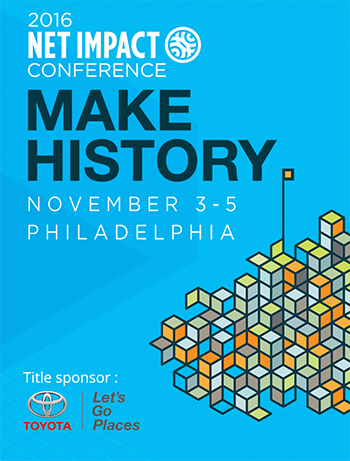A Systems Mindset for Strategic Sustainability Leadership

Why It’s Important, And How You Can Cultivate it on Nov. 3
What’s the secret to creating true, broad-based advances in sustainability, and leading at the organization level while staying true to your values?
To a large extent, it’s the ability to understand complex systems, and how they change over time. By adopting this “systems mindset,” sustainability leaders can learn to think and act strategically, and develop initiatives that go beyond small-scale incremental change.
Hannah Jones, Nike’s Chief Sustainability Officer and VP, Innovation Accelerator, sets a great example. She leads a team that is pushing Nike to “decouple growth from constrained resources” by rethinking how it uses materials and makes its products. Like most sustainability efforts, this is a complex task, involving dozens of stakeholders, a worldwide development and supply chain, and extremely dynamic markets.
To succeed, “You must have a massive capacity for understanding systems change, and the ability to be flexible and understand how to effect change,” says Jones. “And it is really about enabling others to make change.”
Because we believe that this skill set is so critical to implementing sustainability efforts, and that the best way to learn is by doing, Lise Laurin, EarthShift Global’s founder and CEO, and I have developed a hands-on 3-hour workshop on Systems Change. It will premiere at Net Impact’s inaugural Impact Accelerator program on November 3. Think of it as a scrimmage that will prepare you to think and act in real-world situations.
The workshop is built around a state-of-the-art, full-immersion simulation based on an actual pulp mill project in Rio Negro, Uruguay. Participants play the roles of the mill’s management team, seeking to build a sustainable business that operates profitably while having a positive impact on the environment and the local community.
Participants deal with the same tasks as Hannah Jones and other high-impact sustainability professionals: uncovering hidden challenges, like deep concerns from local residents, unforeseen environmental impacts, and sudden market and technology shifts, and hidden opportunities - possibilities for local development, employment of ecological services, and product diversification.
Over the past two decades I’ve seen firsthand how this training approach cultivates skills like making complex decisions under time pressure with incomplete information, and creating productive engagement with key stakeholders whose view of the system often differs from one’s own.
By combining a detailed computer simulation with behavioral elements (e.g. reports, e-mails, live stakeholder interactions), this unique experience brings together “hard” and “soft” skills on the practice field: leaders learn how they impact each other while seeing how the system responds to their decisions. We periodically pause the action, so participants can step back and reflect on actions and the consequences. Bottom line: accelerated learning and insight into strategic decision-making that creates lasting value for both a business and society.
We’re especially glad that our workshop will be under the auspices of Net Impact, a community of more than 100,000 students and professionals focused on world-changing action. Their annual conference (being held this year in Philadelphia Nov. 3-5) attracts more than 3,000 attendees to hear inspiring speakers, build skills, and network.
The Impact Accelerator is a new professional development track focused on hands-on learning and candid dialog. In addition to our Systems Change workshop, the day-long program includes sessions on leadership at the personal level and social intrapreneurship. Over 100 professionals are expected to attend – and we hope you will be among them.
To attend the Impact Accelerator you can register here for a Platinum Conference Pass. Or if you’d like more information, please email me at [email protected].